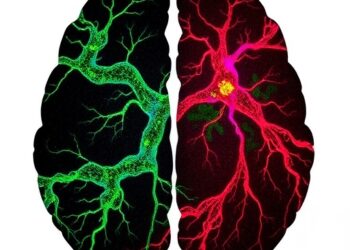A new study, published today in Nature Communications and involving nearly the whole adult population of England, has found that the incidence of heart attacks and strokes was lower after COVID-19 vaccination than before or without vaccination.
A new study, published today in Nature Communications and involving nearly the whole adult population of England, has found that the incidence of heart attacks and strokes was lower after COVID-19 vaccination than before or without vaccination.
Research led by the Universities of Cambridge, Bristol and Edinburgh and enabled by the British Heart Foundation (BHF) Data Science Centre at Health Data Research UK analysed de-identified health records from 46 million adults in England between 8 December 2020 and 23 January 2022. Data scientists compared the incidence of cardiovascular diseases after vaccination with the incidence before or without vaccination, during the first two years of the vaccination programme.
The study showed that the incidence of arterial thromboses, such as heart attacks and strokes, was up to 10% lower in the 13 to 24 weeks after the first dose of a COVID-19 vaccine. Following a second dose, the incidence was up to 27% lower after receiving the AstraZeneca vaccine and up to 20% lower after the Pfizer/Biotech vaccine. The incidence of common venous thrombotic events – mainly pulmonary embolism and lower limb deep venous thrombosis – followed a similar pattern.
Co-first author Dr Samantha Ip, Research Associate at the University of Cambridge, said: “We studied COVID-19 vaccines and cardiovascular disease in nearly 46 million adults in England and found a lower incidence of common cardiovascular diseases, such as heart attacks and strokes, following each vaccination than before or without vaccination. This research further supports the large body of evidence on the effectiveness of the COVID-19 vaccination programme, which has been shown to provide protection against severe COVID-19 and saved millions of lives worldwide.”
Previous research found that the incidence of rare cardiovascular complications is higher after some COVID-19 vaccines. For example, incidences of myocarditis and pericarditis have been reported following mRNA-based vaccines such as the Pfizer/Biotech vaccine, and vaccine-induced thrombotic thrombocytopenia following adenovirus-based vaccines such as the AstraZeneca vaccine. This study supports these findings, but importantly it did not identify new adverse cardiovascular conditions associated with COVID-19 vaccination and offers further reassurance that the benefits of vaccination outweigh the risks.
The incidence of cardiovascular disease is higher after COVID-19, especially in severe cases. This may explain why the incidence of heart attacks and strokes is lower in vaccinated people compared with unvaccinated people, but further explanations are beyond the scope of this study.
Professor William Whiteley, Associate Director at the BHF Data Science Centre and Professor of Neurology and Epidemiology at the University of Edinburgh, said: “The COVID-19 vaccination programme rollout began strongly in the UK, with over 90% of the population over the age of 12 vaccinated with at least one dose by January 2022.
“This England-wide study offers patients reassurance of the cardiovascular safety of first, second and booster doses of COVID-19 vaccines. It demonstrates that the benefits of second and booster doses, with fewer common cardiovascular events include heart attacks and strokes after vaccination, outweigh the very rare cardiovascular complications.”
The research team used de-identified linked data from GP practices, hospital admissions and death records, which were analysed in a secure data environment provided by NHS England.
Co-last author Dr Venexia Walker, Research Fellow at the University of Bristol, said: “Given the critical role of COVID-19 vaccines in protecting people from COVID-19, it is important we continue to study the benefits and risks associated with them. The availability of population-wide data has allowed us to study different combinations of COVID-19 vaccines and to consider rare cardiovascular complications. This would not have been possible without the very large data that we are privileged to access and our close cross-institution collaborations.”
Journal
Nature Communications
Method of Research
Observational study
Subject of Research
People
Article Title
Cohort study of cardiovascular safety of different COVID-19 vaccination doses among 46 million adults in England
Article Publication Date
31-Jul-2024




